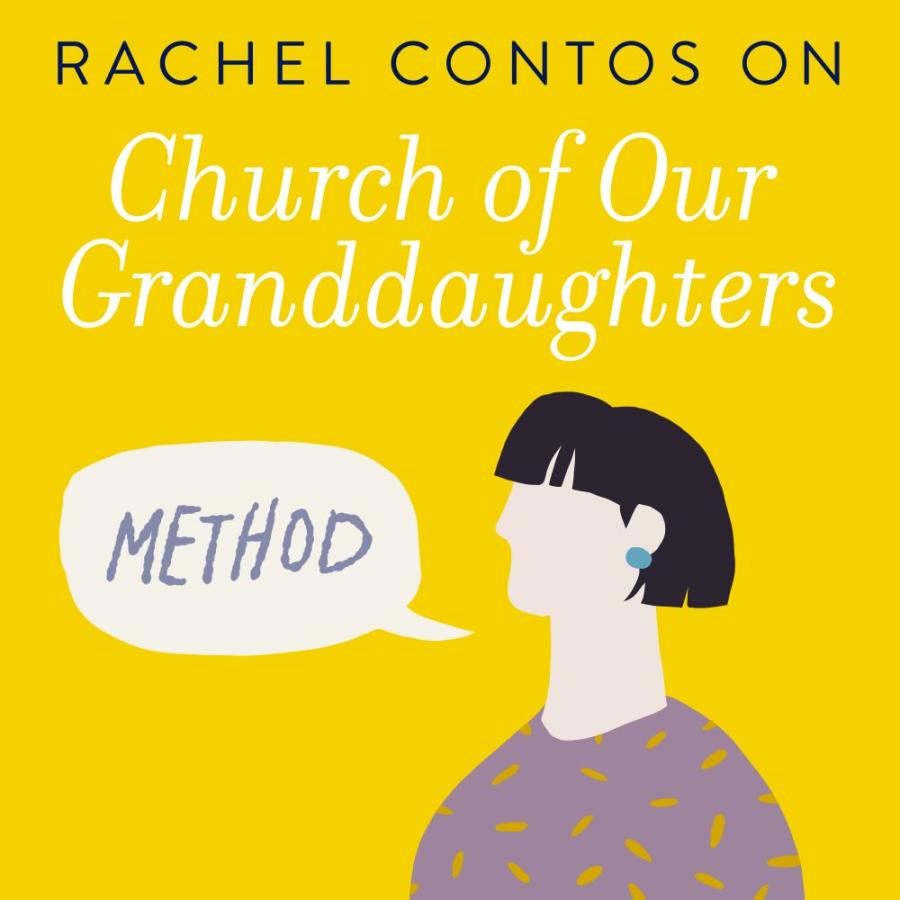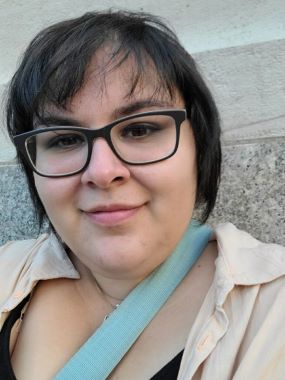
This is last in our series of four blog posts by women from different jurisdictions, this week focusing especially on theological methods. We'll be holding a webinar on July 30 by Carrie Frederick Frost, who will be speaking about her new book, Church of Our Granddaughters, focusing on menstruation. (You can register for that event here.) This is by Rachel Contos, who is currently studying for a PhD in Theological Ethics:
As Orthodox people, we are taught that our Church is unchanging, or that it has preserved the traditions of the early Church until today. We learn that the test of Orthodox theology and ethics is how well it adheres to the traditions of the past. This often poses a methodological problem for those of us in the 21st century, where change is happening fast—from new science on genetics, sex, and gender, to AI, to the ecological crisis. There is more information, international communication, and seemingly more and faster change than ever before. This leads to critical questions about how Orthodox people do theology in this century, how we navigate complex systems, and how we continue to look to the ancient Church for guidance while acknowledging our own current and different lived realities.
In Dr. Carrie Fredrick Frost’s fantastic new book Church of Our Granddaughters, she takes on the challenge of doing theology not only for our current time but also for two generations deeper in the future. In this blog, I won’t be looking at the specific issues she covers (ordination, churching, prayers for miscarriage, etc.). Instead, I want to address some of the key methodological claims she makes about how we do theology across time–and think about how we might use these insights to think theologically in our everyday lives, particularly if we want to influence the church of our granddaughters.
First, Frost always starts with love. On the first page of her book, she responds to someone asking how she can stand the Orthodox Church with its stance on women, “I can stand it—in fact, I can more than stand it—I love the Orthodox Church” (1). This love as a guiding force is a key characteristic of Frost’s work that I deeply admire. Further, she doesn’t define love in an emotional/affective way. For her, love is sustaining (2) and enlivening (97): it pushes us to action. In his famous hymn on love in Corinthians, Paul says, “Love does not delight in evil but rejoices with the truth. It always protects, always trusts, always hopes, always perseveres” (1 Cor. 13:6-7). Frost shows us what a theological method in which love is a verb can look like.
Second, she asks us to consider lived incarnational realities–and how they show us that the “Institution of the Orthodox Church has never really realized” Christ and the early Church’s example of seeing both men and women as made in the image and likeness of God (4). However, in this never fully realized-ness of the Church, there are glimmers of change that the Church makes when it attunes to incarnational realities: changes to hurtful miscarriage prayers, increases in women’s liturgical roles, and expanding leadership roles within local parishes. We live, asFrost notes, in the time after Christ’s incarnation, in between Eden and the eschaton (end times). And so, method-wise, this teaches us a couple of things: the incarnational reality we live in gives us real bodies, in history, and that we are in a process of living into a fully realized vision of the Church. This is not something to mourn, but to celebrate in love–and to work toward in community. Importantly, it also means that we cannot “make [the Church] into a golden calf” that is equivalent to God’s vision for our lives and communities: instead, we need to work toward it becoming an image of the Kingdom of God (8).
Third, Frost looks to the Church’s own standards of truth, not to external sources of validation. She notes that practices and norms that are not theologically cogent (like purity standards or the subjugation of women) “have been institutionalized in the Orthodox Church’s practices” (6). She goes on to say, “Oppressive structures of the Orthodox Church are oppressive in relation to Orthodox doctrine” and haven’t come to us only from outside socio-cultural forces or new views (7, emphasis original). Throughout the book, Frost models this methodology by comparing past theology/practice with present practice and the theology underpinning it. Fidelity to the Church’s early vision thus often guides her future-constructive thinking.
To recap, Dr. Frost gives us three clear methodological moves to explore:
- Starting with Love that is active.
- Considering incarnational realities and the Church becoming fully realized.
- Measuring oppressive structures in the Church according to the Church’s own theology.
I believe a methodology like Frost’s can be used by Orthodox Christians for the benefit of the entire Church. It allows us to look to the lineage of the past, listen to our current realities, and envision and create a future for tomorrow in ways that honor our Church community that lives throughout time. For example, I can imagine amazing ethnographic research being done on Orthodox women’s spirituality which is then used to help guide change in the harmful prayers Frost highlights (like the miscarriage and churching prayers). I can also see coalition-building work—like Axia Women’s—that supports women leaders and thinkers in their work to increase the number and variety of voices in leadership in the Church.
However, above and beyond these practical implications, I find her methodology to be invigorating: it can help us reframe the change to increase women’s place in Orthodoxy not as something subversive or bad; instead it can be recognized as loving, incarnational, fully realizing Christ’s vision, more Orthodox, faithful to the Tradition. If this were the ethos by which all the faithful collaborated on important and difficult issues, what a beautiful Church our granddaughters would have indeed.
Rachel Contos is a doctoral student in theological ethics at Fordham University and an Axia board member.



